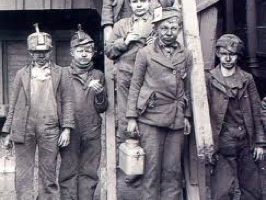
BLOG

The Chimney Sweeper (Songs of Experience)
Wednesday, August 31, 2011
I’ve got a buddy whose message to his students was often, “Don’t believe the hype!” What he was referring to, I think, is the way schools, churches, parents, governments, peers and media will try to get young people to believe stuff that will make them easy to take advantage of.
Well, the young guy in this “Song of Experience” has figured out the hypocrisy of a family, government, and, yes, religious establishment that allow people to exploit kids. Regardless of your religious affiliation, you’ve got to know Christ often said he loved children, and that one had to be like a child to get to heaven. Yet, where was the Church of England when children were being abused? You have to figure the words spoken by the boy in this poem are dripping with sarcasm.
A little black thing among the snow,
Crying "'weep! 'weep!" in notes of woe!
"Where are thy father and mother, say?"
"They are both gone up to the church to pray.
"Because I was happy upon the heath,
And smiled among the winter's snow,
They clothed me in the clothes of death,
And taught me to sing the notes of woe.
"And because I am happy and dance and sing,
They think they have done me no injury,
And are gone to praise God and his Priest and King,
Who make up a heaven of our misery."
The child is a “black thing” to the passer-by. He’s hard to recognize as a human. Of course, the King and the Church don’t recognize his humanity.
It just occurred to me that the Ten Commandments say, “Honor Thy Father and Thy Mother,” but they don’t command anyone to be nice to kids. It’s Nature that demands we love our children. This conflict, between civilized law and natural law, is all over literature. More often, authors side with natural morality. Blake suggests it’s ironic that the parents commit a sin against nature - they don’t nurture their kids - and then think they’re holy since they go to church.
Kids play. They try to be happy. This boy accuses his parents of rationalizing that he’s happy as a chimney sweep because he’s goofing around, being a kid, out in the snow. But he knows that the job is killing him. He’s deriding his parents.
Yes, the sweep blames God as well as the Priest and the King, for his plight. Neither the government, nor the Church, nor Heaven itself will intercede for him. Note how this is a mirror image of the innocent version of this poem. In that one, the sweep imagines God sends an angel to give him hope. This kid realizes it ain’t gonna happen. The only heaven anybody gets in this poem is the economic heaven for his parents of having a few more shillings in their pockets.
